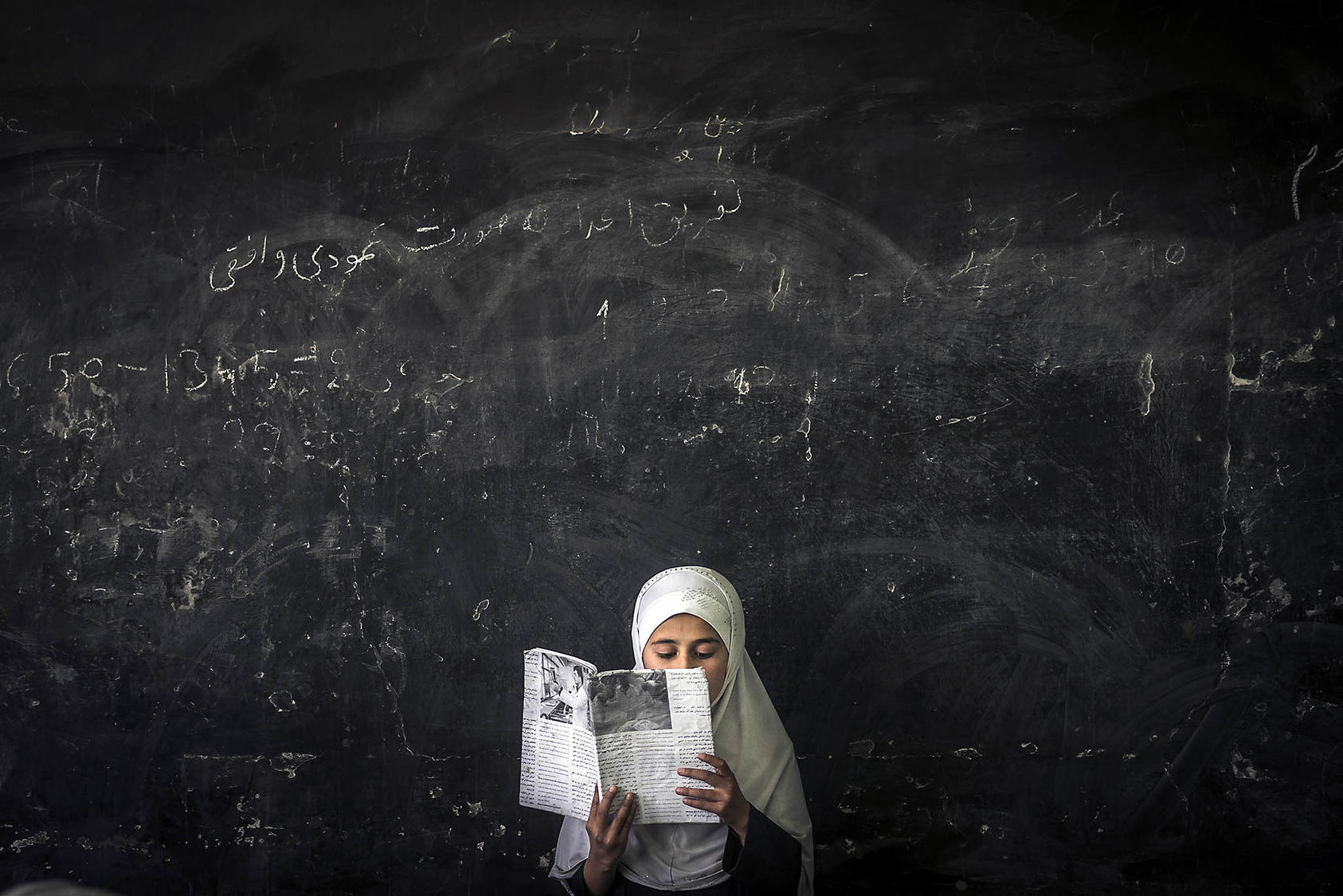Afghan women and girls deserve moral and material support to sustain their resiliency against the Taliban’s worsening repression.

The central theme of this year’s International Day of the Girl focuses on identifying opportunities to boost resources for girls and address the challenges they face. Unfortunately, the Taliban’s policy priorities intentionally obstruct girls’ development and discourages any discussion aimed at improving the lives of half of the country’s population.
A Complete Constriction of Girls’ Rights
One of the Taliban’s first acts after coming to power was the suspension of girls’ education beyond the sixth grade — an act that has been universally condemned by the Organization of Islamic Countries (OIC), the United Nations, 80 U.N. member and observer states. The Taliban government has also yet to be recognized as legitimate by any member of the international community.
I try to imagine how a sixth-grade girl feels as she nears the end of the school year. Instead of experiencing the usual feelings of excitement, curiosity and anticipation that should accompany the graduation to middle school, these young girls are burdened with overwhelming fear, dread and uncertainty. As they near the conclusion of the sixth grade, they find themselves at a critical juncture — and then their educational journey is abruptly halted.
Imagine the psychological toll this takes on a young person’s mind: The future that once held promise for expanding their horizons, gaining knowledge and pursuing dreams is suddenly overshadowed by the grim reality imposed by the Taliban.
The Taliban have been vigilant and cruel in enforcing their ban. Elementary school girls who appear older, taller or more physically developed are expelled — a subjective process in a country where many girls lack birth certificates. In some parts of the country, girls are subjected to disturbing “intimate” physical examinations to identify and expel girls who the Taliban believe have reached puberty.
The Taliban’s appalling fixation on control and restriction of girls’ lives goes well beyond just prematurely ending their education. Young girls are often forced to wear head-to-toe hijabs and burqas, effectively rendering them invisible in society. Many are banned from playgrounds, and if they are found laughing and playing outside their homes, the Taliban’s notorious religious police — better known as the vice and virtue police — may harshly reprimand them. Girls also are banned from taking part in art and cultural education and activities. The Taliban’s seemingly boundless fixation constantly drives them to look for, and eventually find, new ways to rob girls of both their childhood and their future.
The emotional toll is immeasurable. Many Afghan girls are made to feel ashamed of their gender due to the discrimination they face. When I spoke to a mother and daughter in Kandahar, I sensed a deep sense of despair. The daughter, who is supposed to be in grade seven, told me that she feels “ashamed for being a girl. My gender is the reason I am discriminated against.”
Some girls resort to desperate measures, such as unhealthy eating to stunt their growth, in an attempt to not be kicked out of school. A girl in grade five from Kabul said, “I am only eating one meal a day, so I don’t grow tall, because taller girls are not allowed in school.”
A girl from Paktia said, “War was better than the peace the Taliban claim to have brought. At least we could go to school then.”
In some parts of the country, girls who are not in school are forced into marriage by their father, brother, uncle or other relatives in return for badly needed cash.
The psychological impacts of these disastrous, state-imposed restrictions on girls and women can seem insurmountable to many — and have led to an alarming number of girls taking their own lives. With no end in sight, the number of girls suffering from different types of mental and emotional health disorders only continues to grow.
International Pressure for Change
Despite the Taliban’s rigid enforcement, many parents I’ve talked to have expressed frustration, despair and anger toward the Taliban for depriving their children of the fundamental right to education. Many families are exploring ways to take refuge elsewhere so that their girls might go to school and university — risking detention and abuse, as well as paying hefty amounts to human traffickers, in the process. Those that can afford an internet connection are trying to access education resources online. And there are also many brave individuals creating and attending ad-hoc underground schools in secret.
The vast majority of Afghan parents want a better future for their children and their families, and they are forced to watch their daughters’ rights be denied every day. In honor of the International Day of the Girl, the international community should provide urgently needed support to these girls and their families by:
- Encouraging governments, especially those with diplomatic influence in the region, to exert pressure on the Taliban to reinstate girls’ education and uphold human rights.
- Refraining from high-level photo-op engagements with the Taliban and make engagement conditional with measurable actions.
- Pushing for targeted sanctions against the Taliban officials responsible for human rights abuses, particularly those affecting girls’ rights.
- Calling for accountability through international bodies such as the United Nations and the ICC so that they can investigate and prosecute gender persecution as a crime against humanity.
- Developing and implementing distance learning through easy-to-navigate programs for Afghan girls.
When you drop your daughter, niece, granddaughter or neighbor off at school on this year’s International Day of the Girl, I ask that you take a moment to consider the fate of an 11-year-old Afghan girl as she approaches the end of her educational career. For this girl, the harsh reality of life under Taliban rule has turned what should be a moment of excitement and growth into one of fear and apprehension. And without a concerted international effort, more Afghan girls just like her will watch their hopes for the future dwindle.
